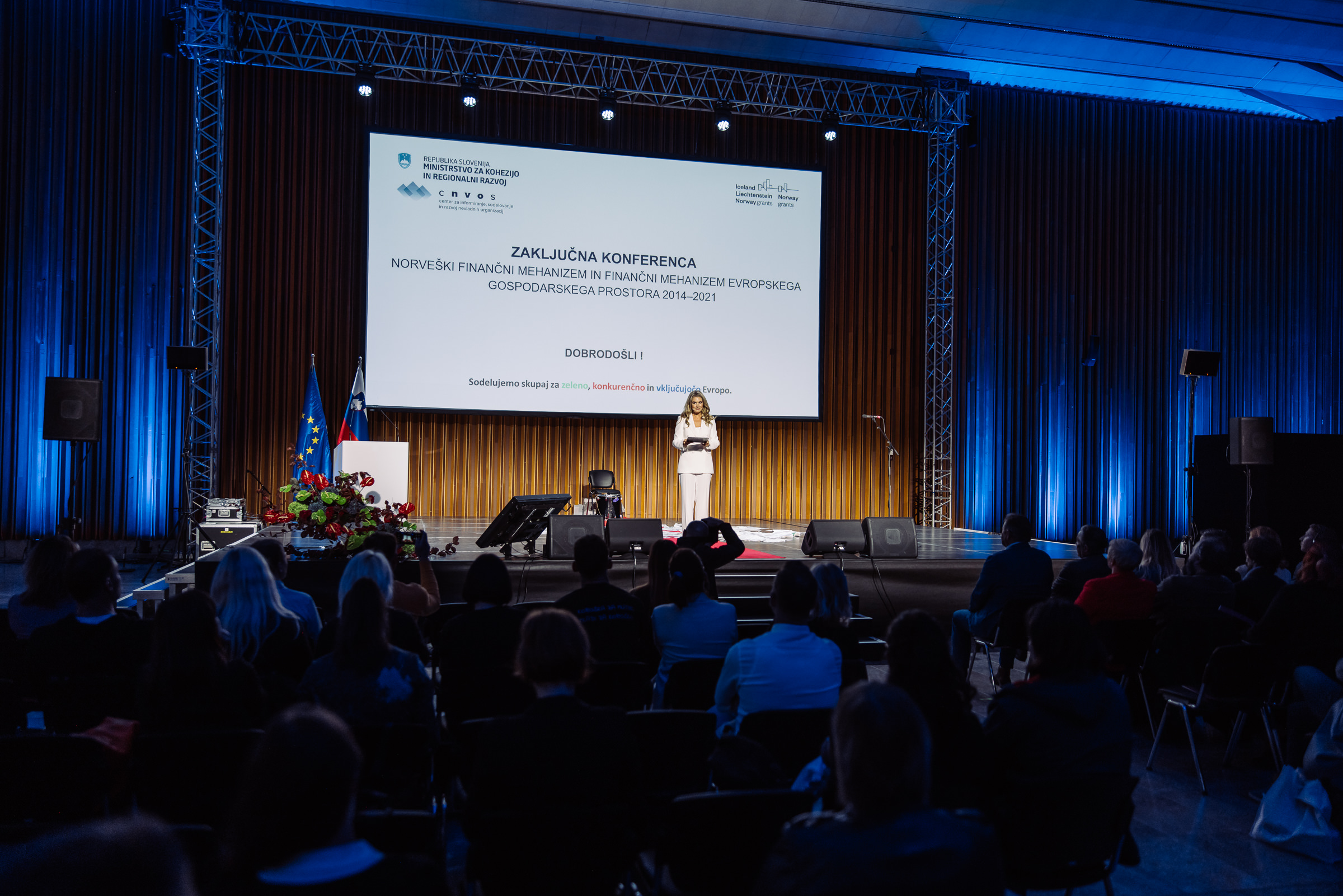
29 October 2024 – At the EEA and Norway Grants 2014-2021 closing conference on 16 October 2024, some of the projects implemented under the Climate Change Mitigation and Adaptation Programme, the Education, Scholarships, Apprenticeship and Youth Entrepreneurship Programme and the Active Citizens Fund were presented.
Climate Change Mitigation and Adaptation Programme Projects
The Climate Change Mitigation and Adaptation Programme aimed at strengthening institutional capacities and implementing pilot projects. Actions focused on sustainable mobility, restoration of Natura 2000 ecosystems, circular economy, and promoting the use of geothermal energy and other less established renewable energy sources. Five selected projects under this programme were presented at the conference.
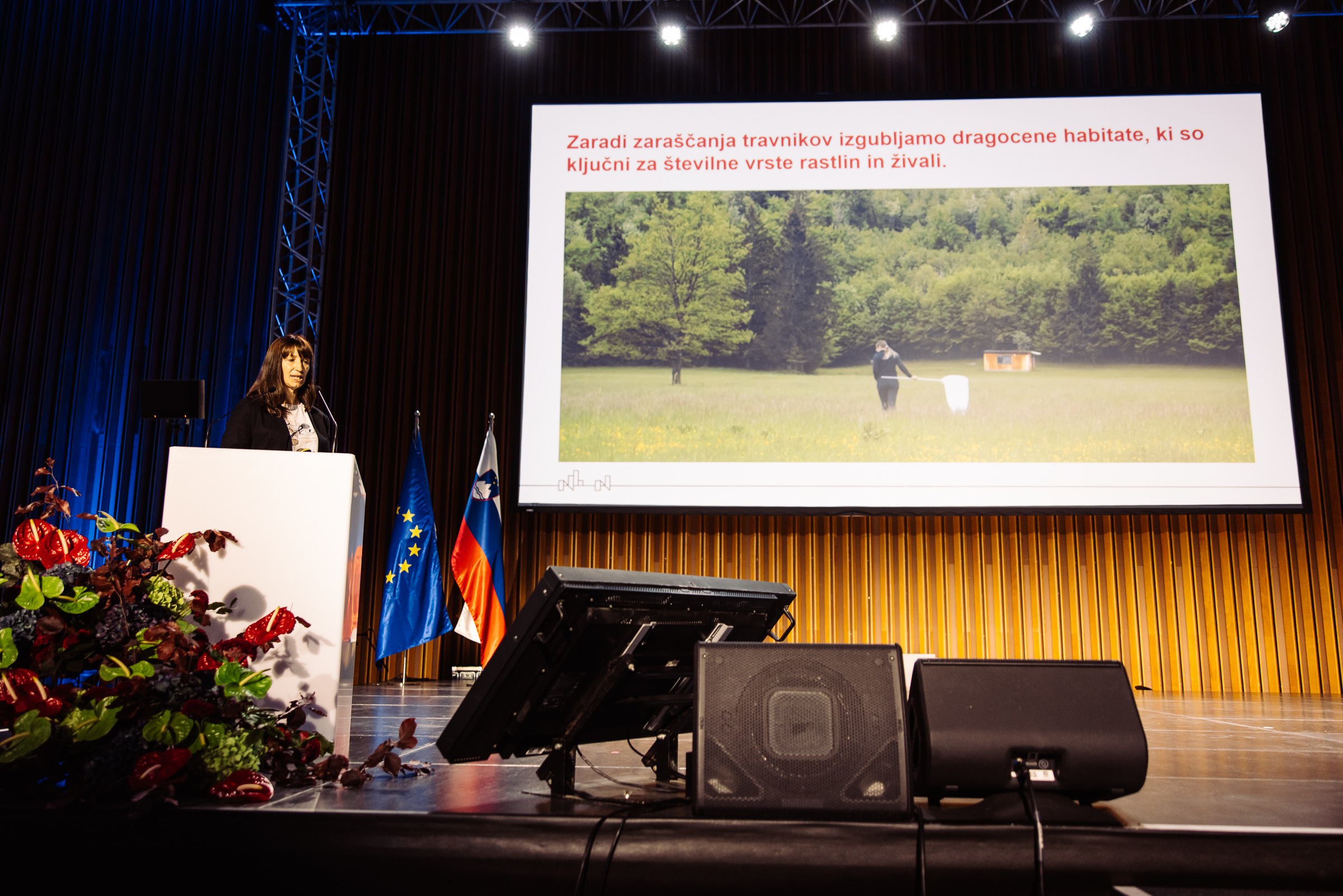
The ReNature project, which focused on improving the management of ecosystems under climate change pressure, was presented by Alenka Volk from the Škocjan Caves Public Service Agency. The ReNature project addressed the restoration of wetlands and grasslands important for Natura 2000 species and habitat types.
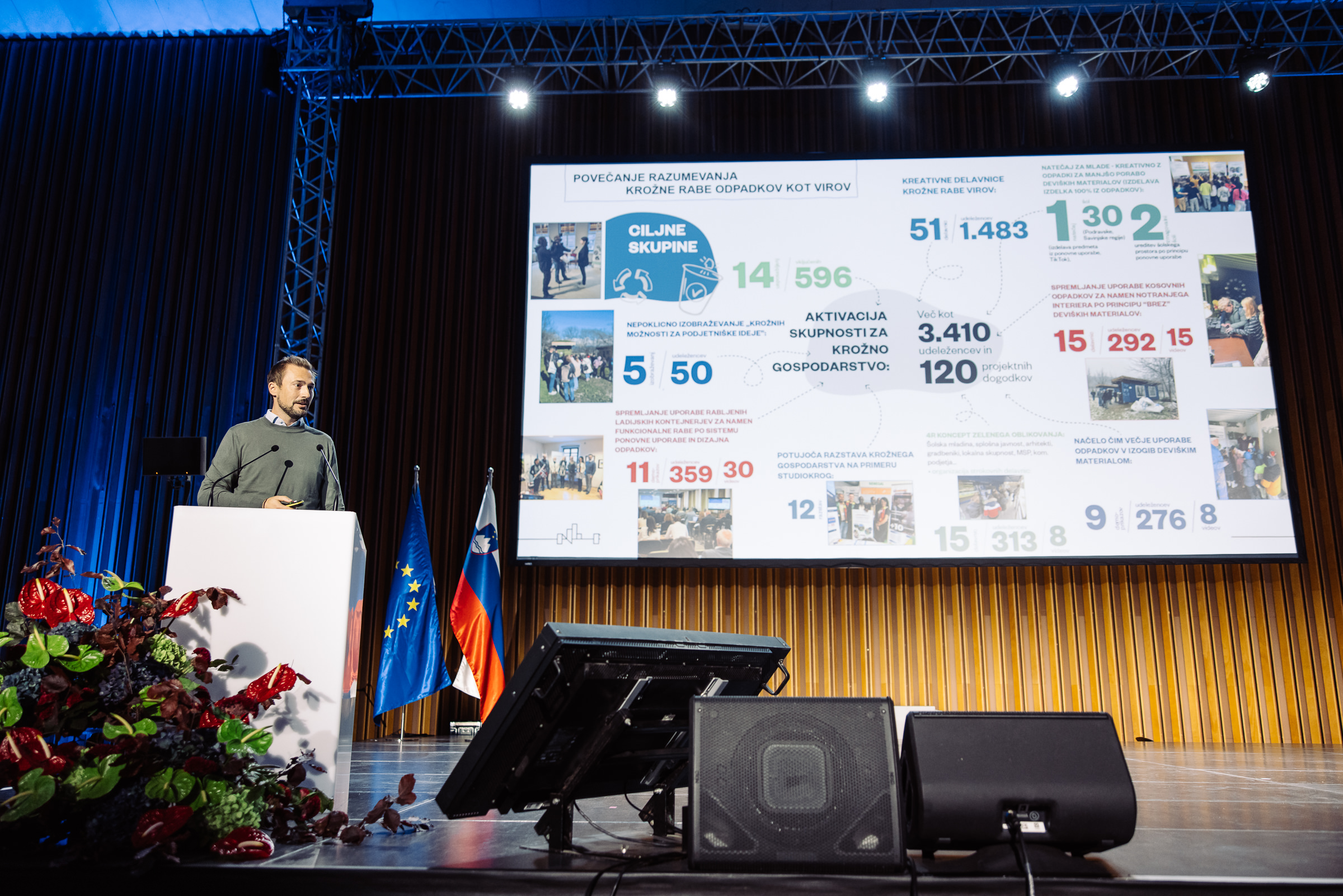
The studioKroG project, which focused on increasing the application of circular economy principles, was presented by Danilo Čeh, Director of Scientific Research Centre Ptuj. The studioKroG project presented innovative green solutions with a holistic approach to the reuse and re-design of waste materials.
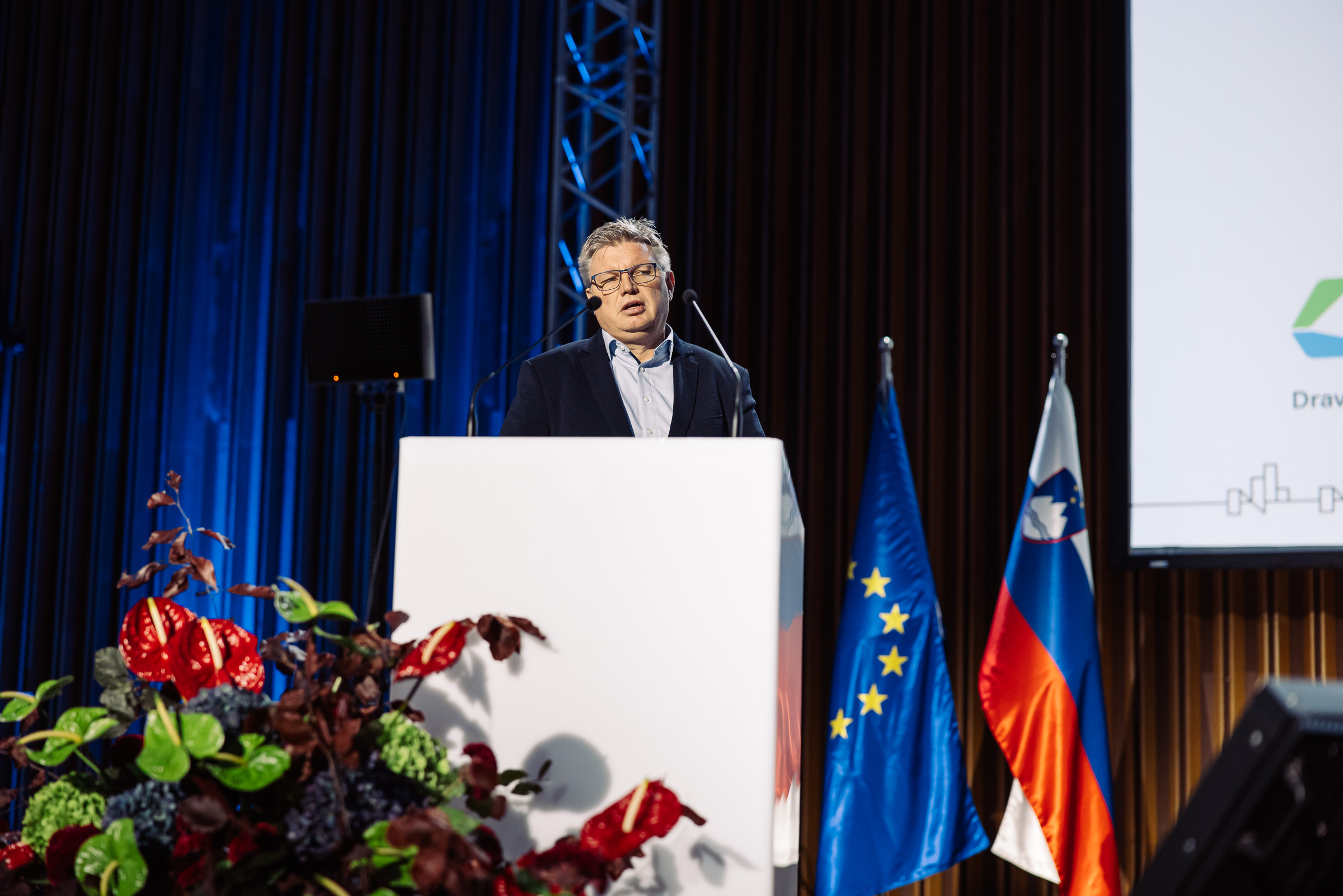
The SI-Geo-Electricity project, which focused on increasing renewable energy production, was presented by Štefan Kozjan from Petrol Geo, production of hydrocarbons, Ltd. The SI-Geo-Electricity pilot project was designed as a demonstration project to increase the use of geothermal energy.
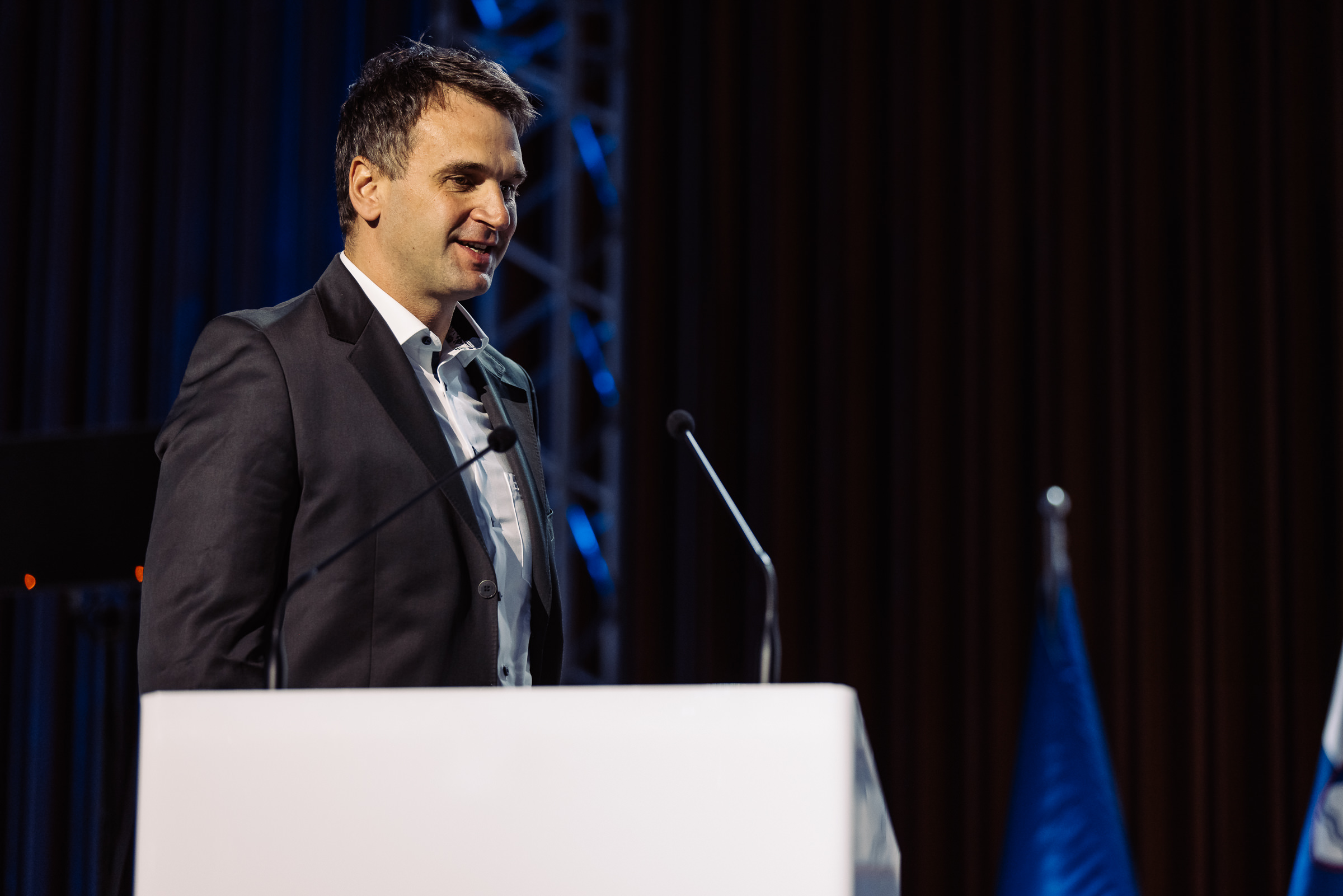
The LEAP project, which also focused on increasing the application of circular economy principles, was presented by Gregor Čepon from the Faculty of Mechanical Engineering, University of Ljubljana. The idea of the LEAP project was to replace plastic packaging (EPS) with more sustainable materials.
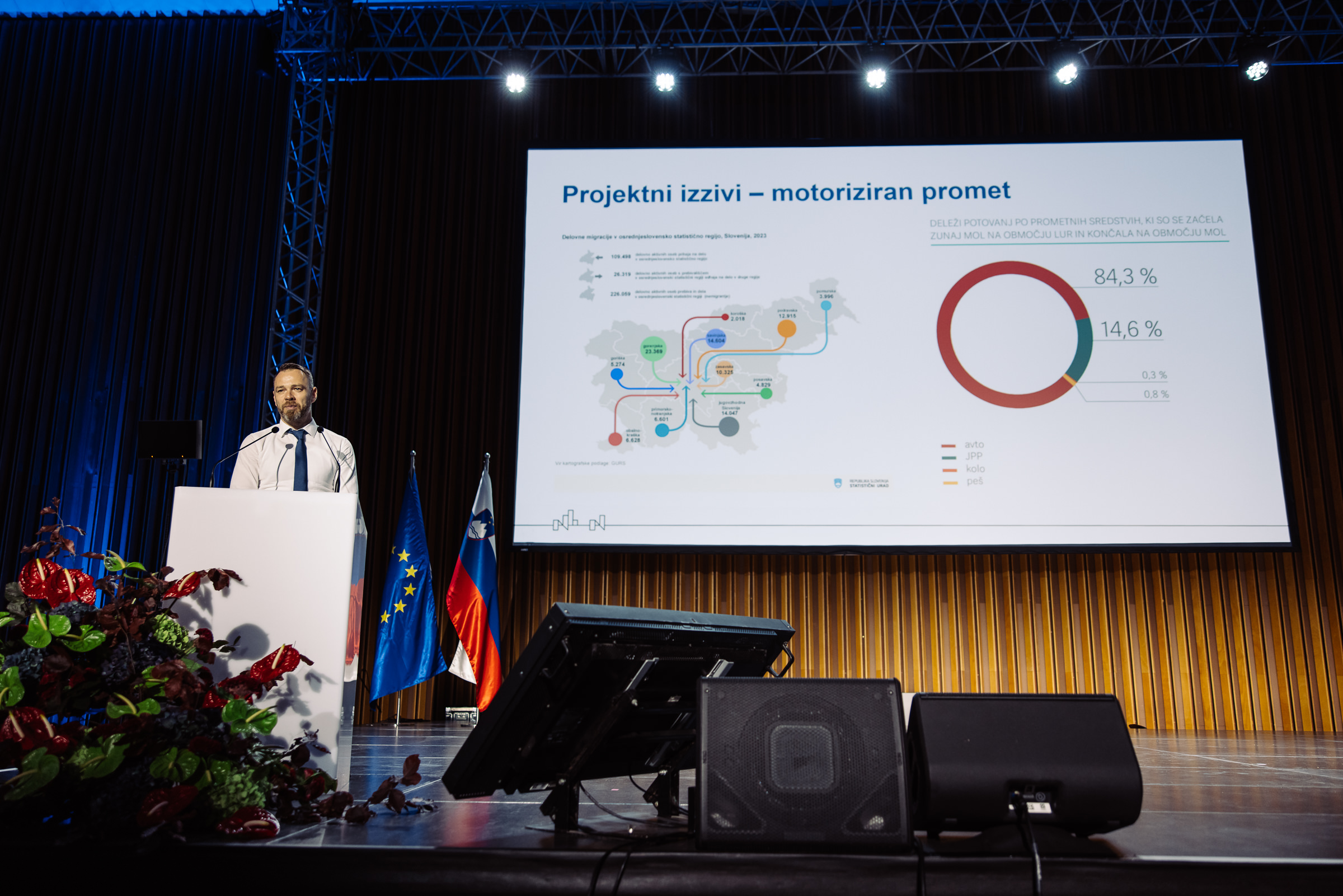
The SmartMOVE project was presented by Klemen Gostič from the Regional Development Agency of the Ljubljana Urban Region. The project focused on managing sustainable mobility in the most congested locations in Ljubljana and around the city, a key transport hub in the country. The project addressed sustainable mobility management in the most congested locations in and around Ljubljana. With mobility plans designed for five organisations at key transport hotspots, the project has established an important foundation for the further spread of sustainable mobility practices in Slovenia. Through the pilot introduction of dynamic group transport, the project has introduced a flexible and ecological alternative to private transport that avoids traffic congestion and reduces travel times.
Education, Scholarships, Apprenticeship and Youth Entrepreneurship Programme Projects
This was followed by presentations of five projects implemented under the Education, Scholarships, Apprenticeship and Youth Entrepreneurship Programme. The programme aimed at strengthening human capital and supporting the development of competencies for the 21st century, the development of the creative economy, better-linking education and training with the real environment, and the development of support measures for the inclusion in life and work of specific groups that are excluded or have less access to support systems.
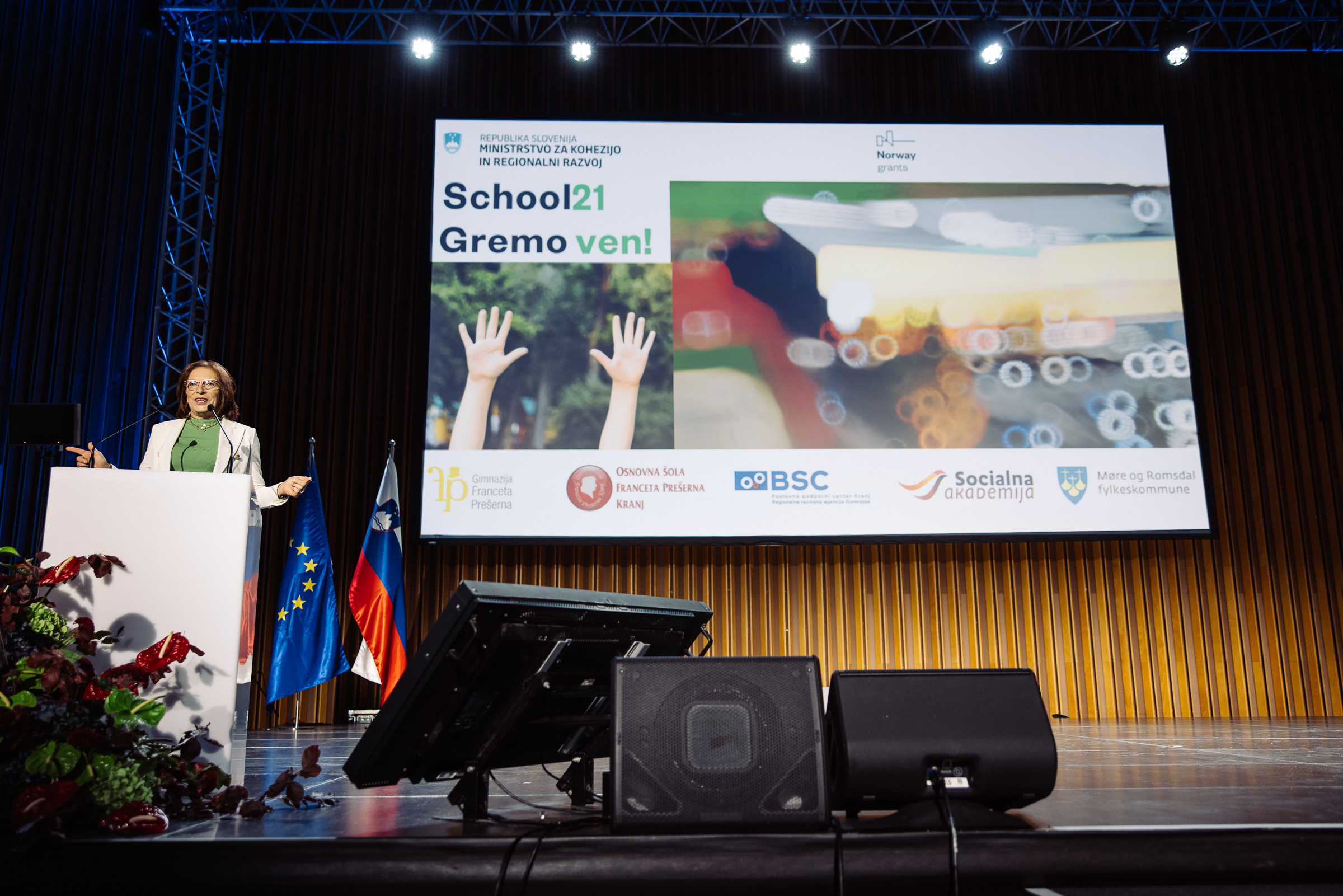
The SCHOOL21 project, which focused on improving institutional cooperation at all levels of education, was presented by Mirjam Bizjak, Headmistress of the France Prešeren Gymnasium. The project was aimed at improving the education system in Slovenia, with a focus on preparing young people for life in the 21st century. Particular emphasis was placed on the introduction of the outdoor teaching and learning method, which is very present in Norway. The project also included the establishment of outdoor classrooms at the France Prešeren Elementary School and the France Prešeren Gymnasium in Kranj.
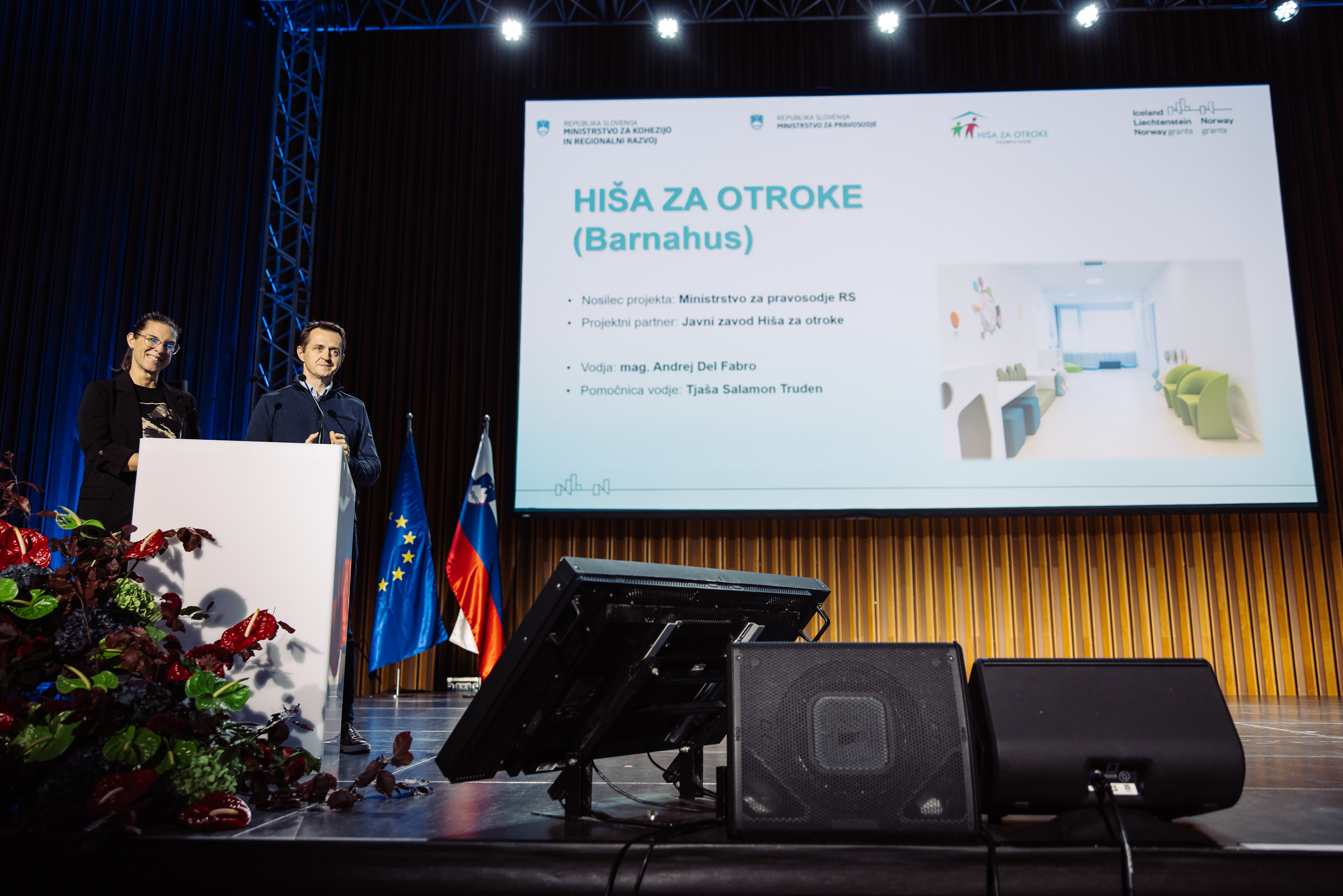
The Barnahus project, which focused on improving skills for good governance and cooperation in the provision of services for child victims of various forms of violence, was presented by Andrej del Fabro and Tjaša Salamon Truden from the Ministry of Justice of the Republic of Slovenia. The pre-defined project House for Children (Barnahus) has established the location of a children’s house in Slovenia.
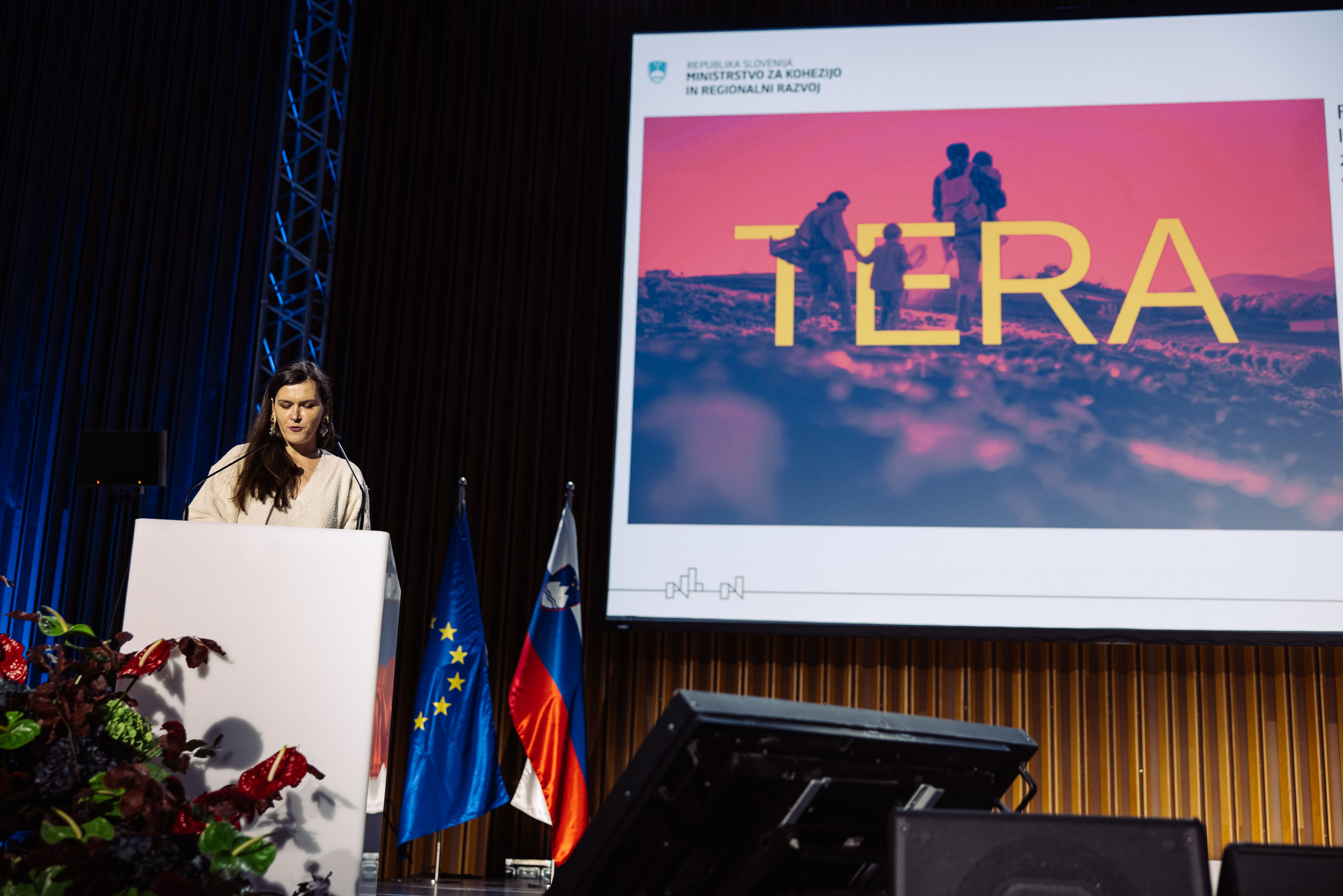
The TERA project, which focused on improving work-life balance, was presented by Ana Pavlič from the Gender Equality Research Institute Maribor. The TERA project addressed the challenges of work-life balance in a rural environment. The project created training on gender stereotypes, traditional gender roles and work-life balance challenges.
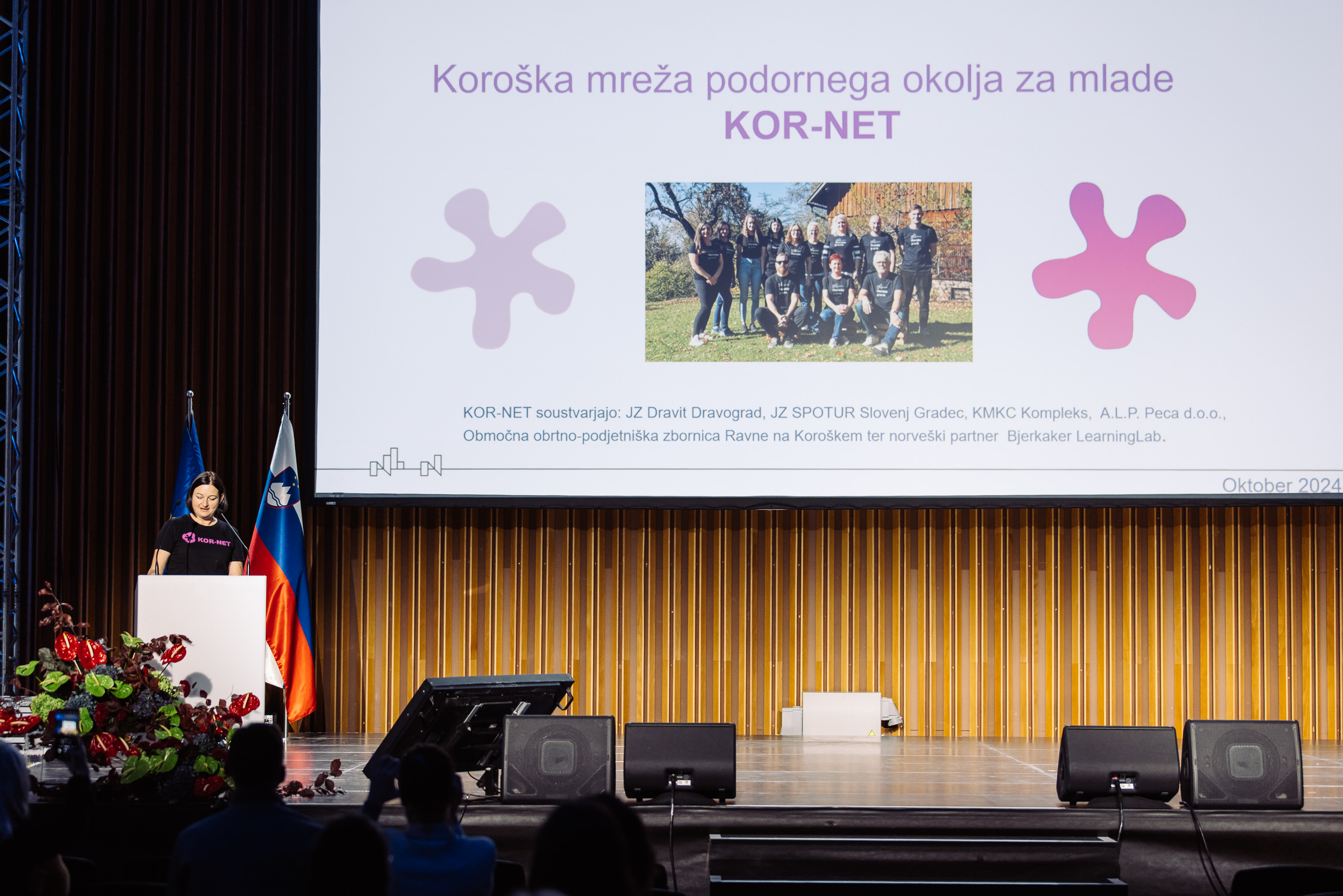
The KOR-NET project, which focused its project activities on improving education and social environment to support disadvantaged groups, was presented by Aleksandra Gantar from the Dravit Dravograd Public Institute for Sports, Tourism, Culture and Youth Activities. The project aimed to strengthen the support environment for young people in Carinthia region and reduce the brain drain, while at the same time equalising opportunities for all young people, especially those from demographically deprived areas, and empowering them to participate actively in public life and the labour market. The project also set up 13 workstations in Carinthia to improve access to information and services for young people in the region.
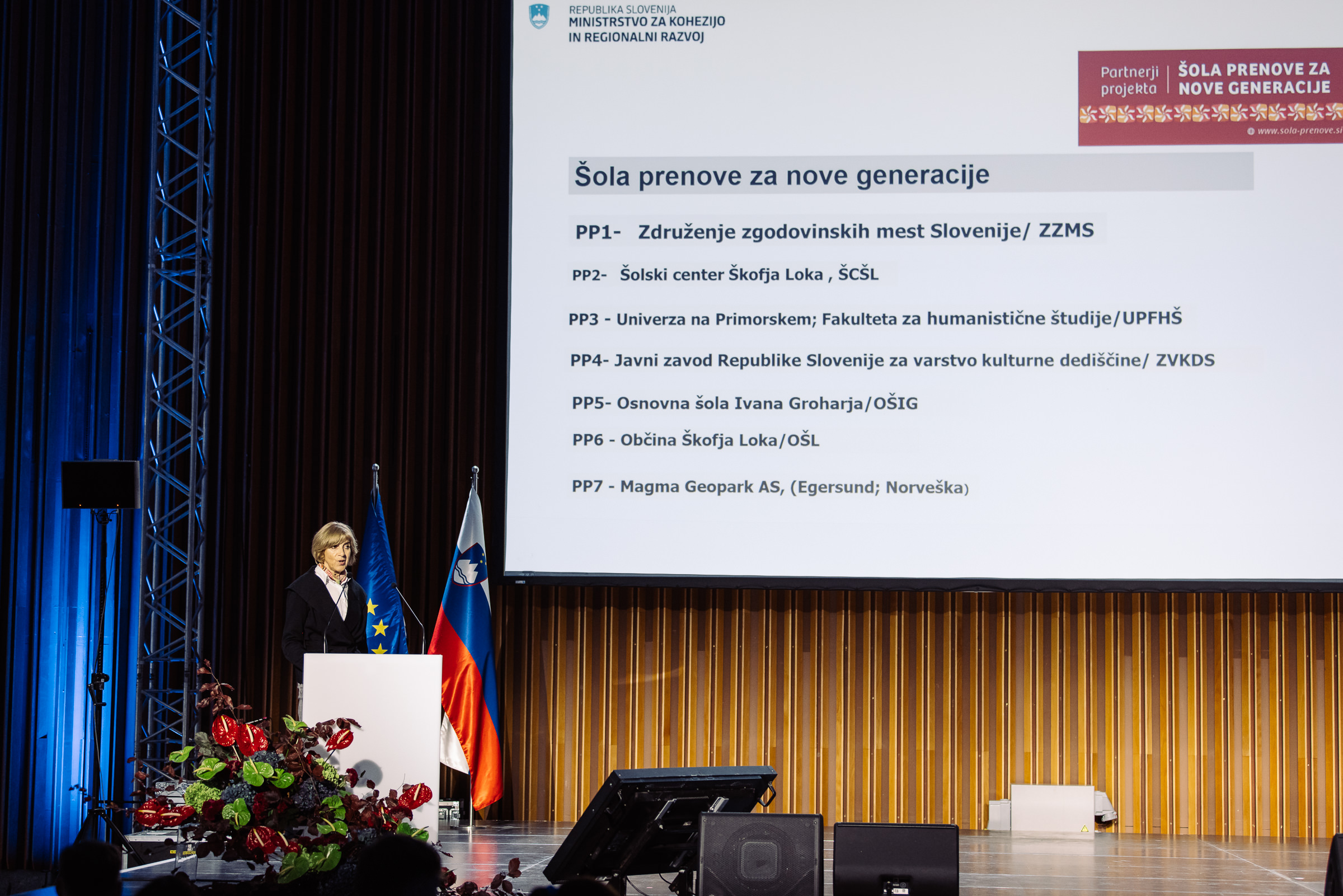
The Heritage School for the New Generations project, which also focused on improving institutional cooperation at all levels of education, was presented by Mateja Hafner Dolenc from the Association of Historic Towns of Slovenia. The project aimed to bring cultural heritage closer to elementary school teachers and pupils, as it is not very well represented in the curricula. New teaching practices make it easy to integrate examples from cultural heritage and renewal skills into the teaching of certain selected topics within existing subject curricula and activity days.
Active Citizens Fund Projects
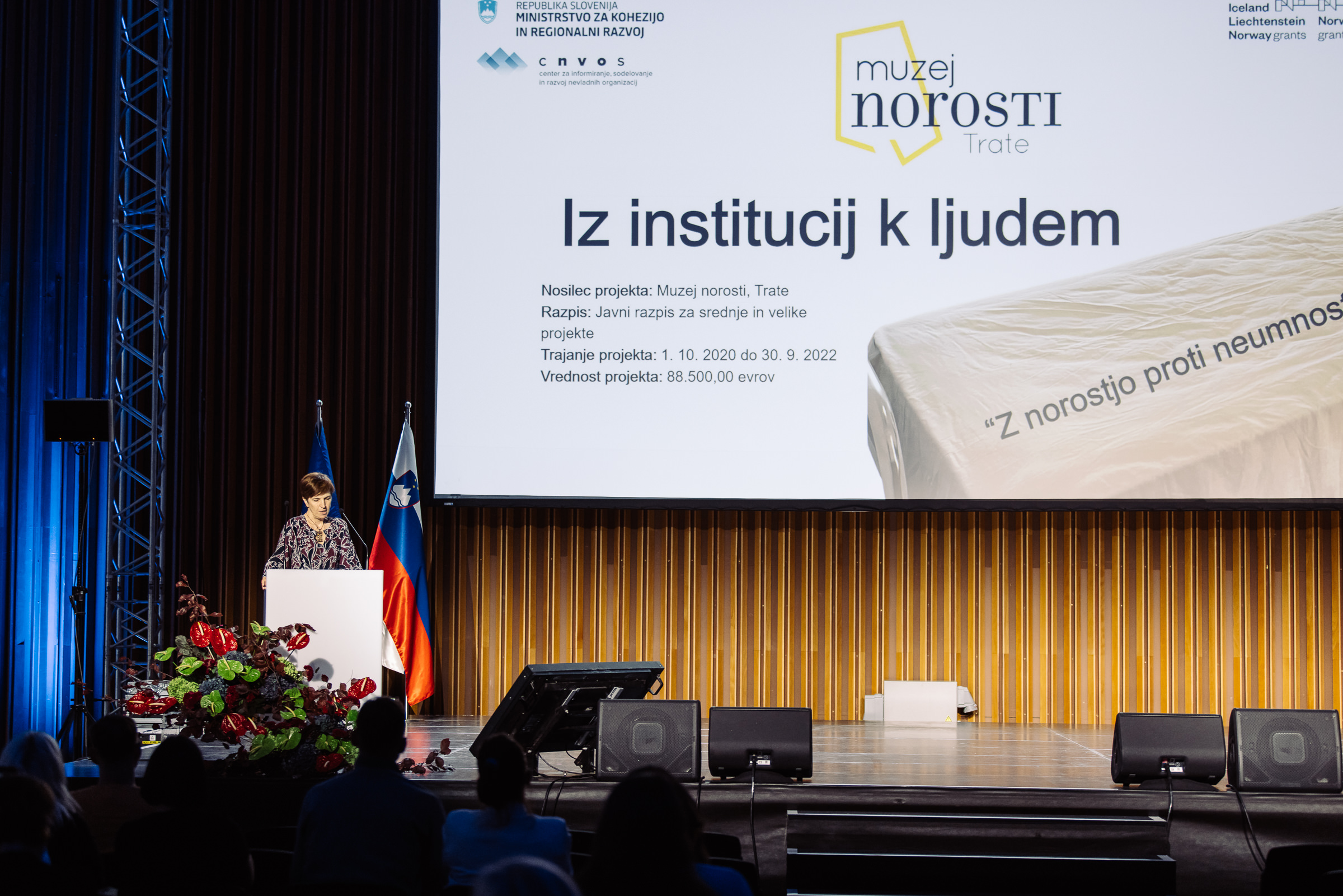
The From institutions to people project, which focused on increasing support for civic education and human rights, was presented by Darja Farasin from the Museum of Madness. The main aim of the project was to raise awareness among young people about human rights violations in institutions in Slovenia and to bring about social change towards the abolition of institutions and the promotion of community-based social protection services.
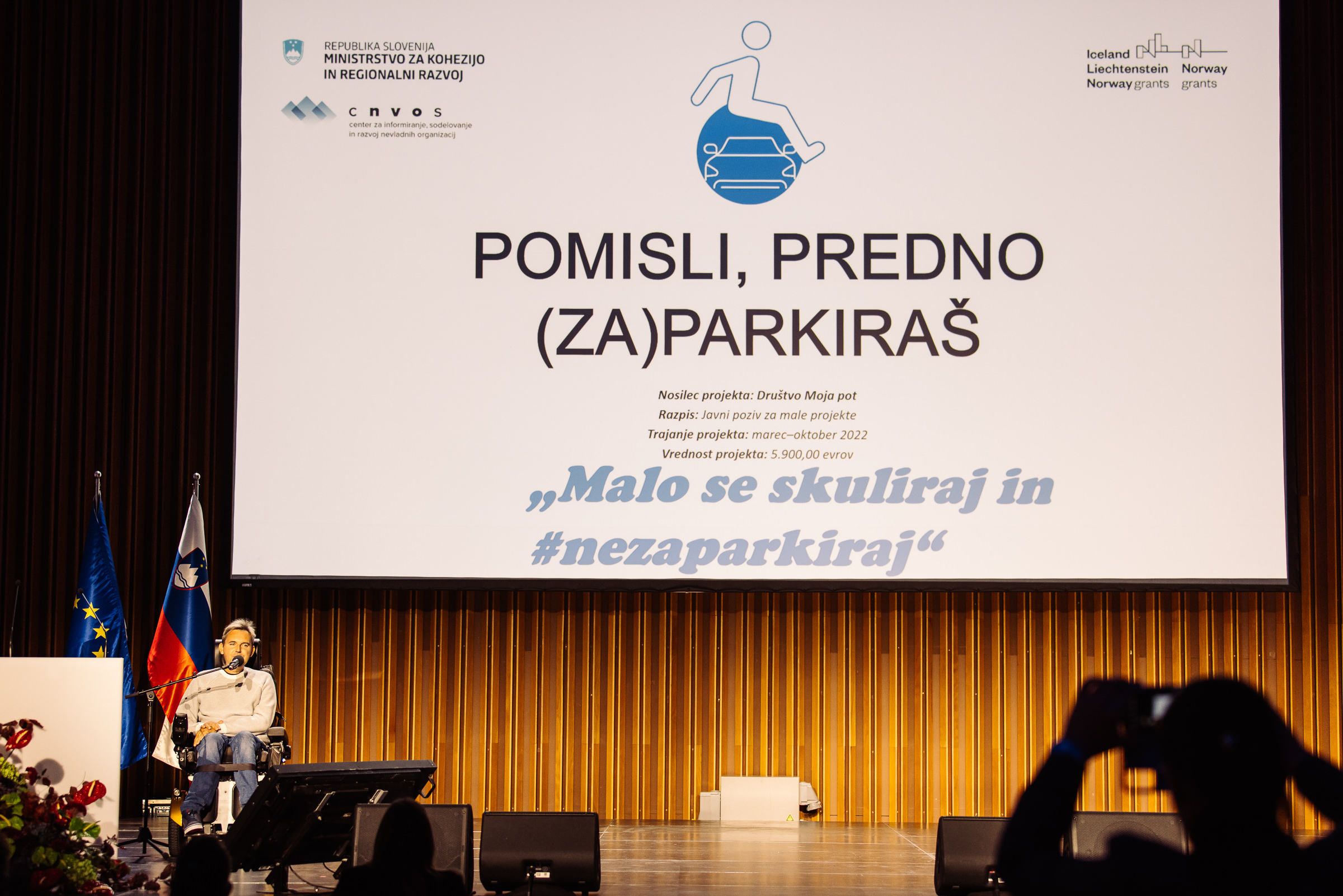
The Think Before You Park project, which focused on strengthening the advocacy role of NGOs, was presented by Marko Kušar from the Association for Mobility of People with Disabilities Moja Pot. The project focused on raising public awareness about the importance of correct parking to ensure smooth mobility for people with reduced mobility.
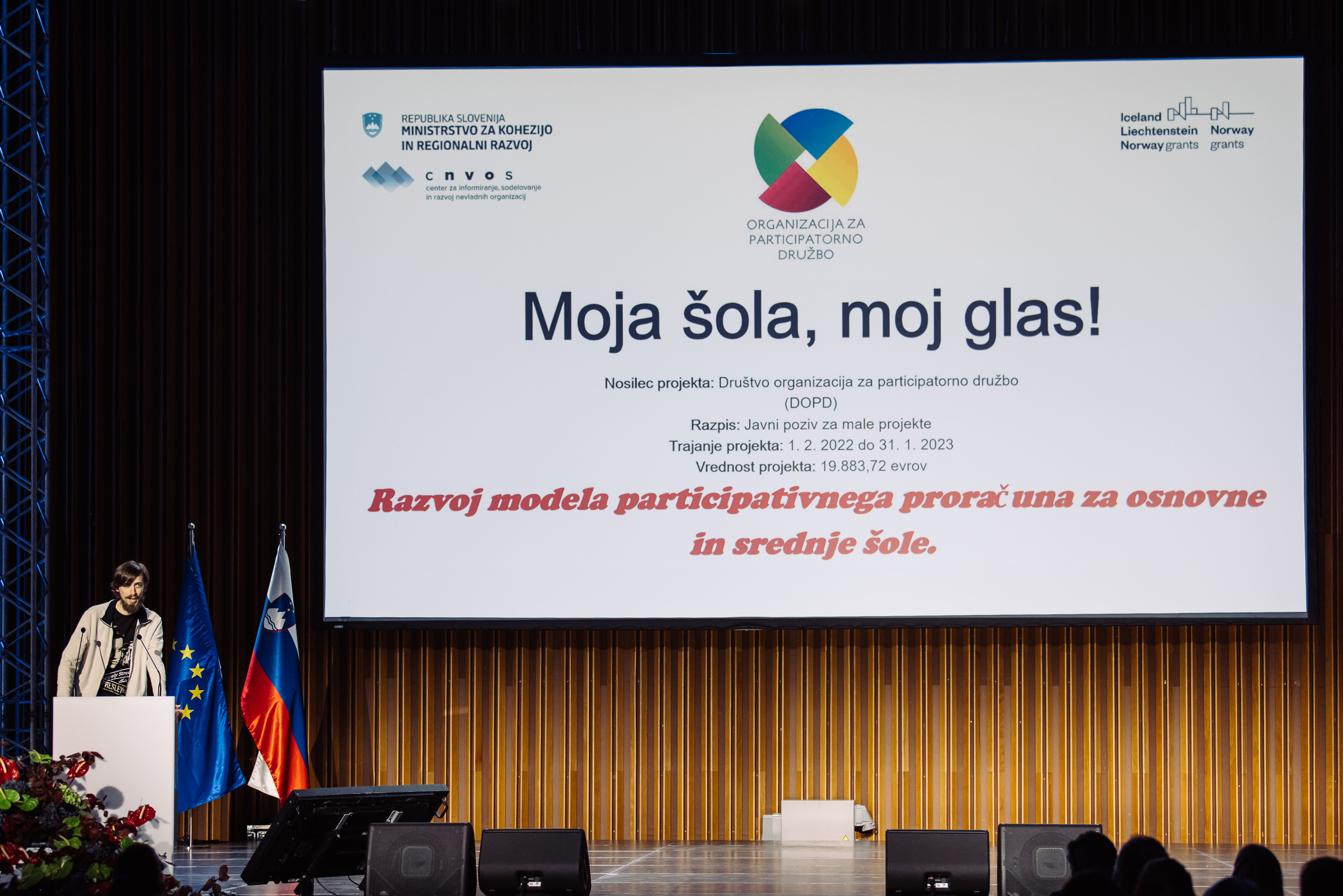
The My School, My Vote! project, which focused on increasing support for civic education and human rights, was presented by Matevž Hrženjak from the Association Organization for Participatory Society. The main aim of the project was to create a political space within the school system where young people can learn about participatory democracy and actively try it out.
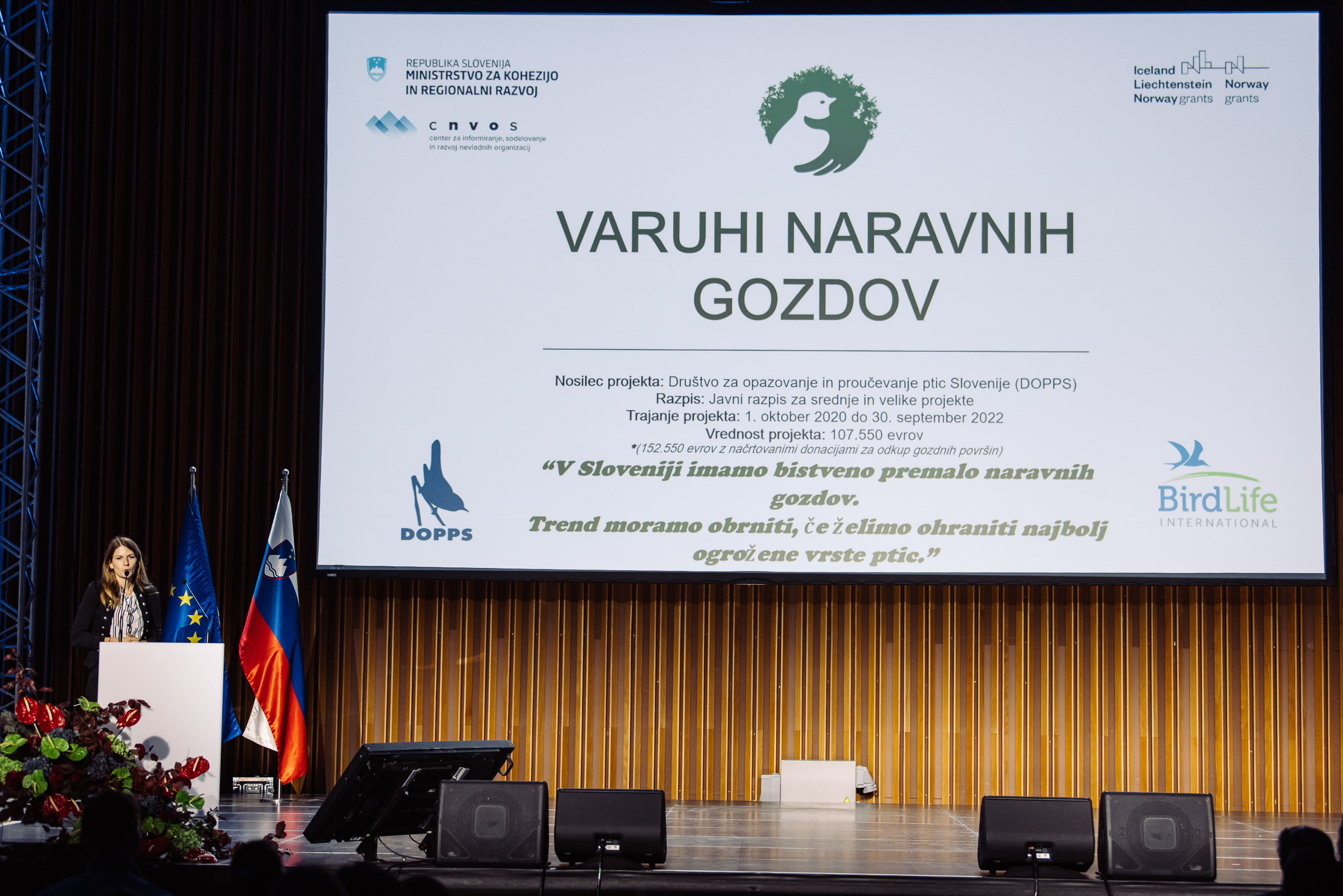
The Caretakers of Natural Forests project, which focused on strengthening the advocacy role of NGOs, was presented by Urša Očko from the DOPPS – BirdLife Slovenia. The Caretakers of Natural Forests project was created as a response to the deteriorating nature conservation status of Slovenian forests, which has been caused by increasingly intensive management in recent years.
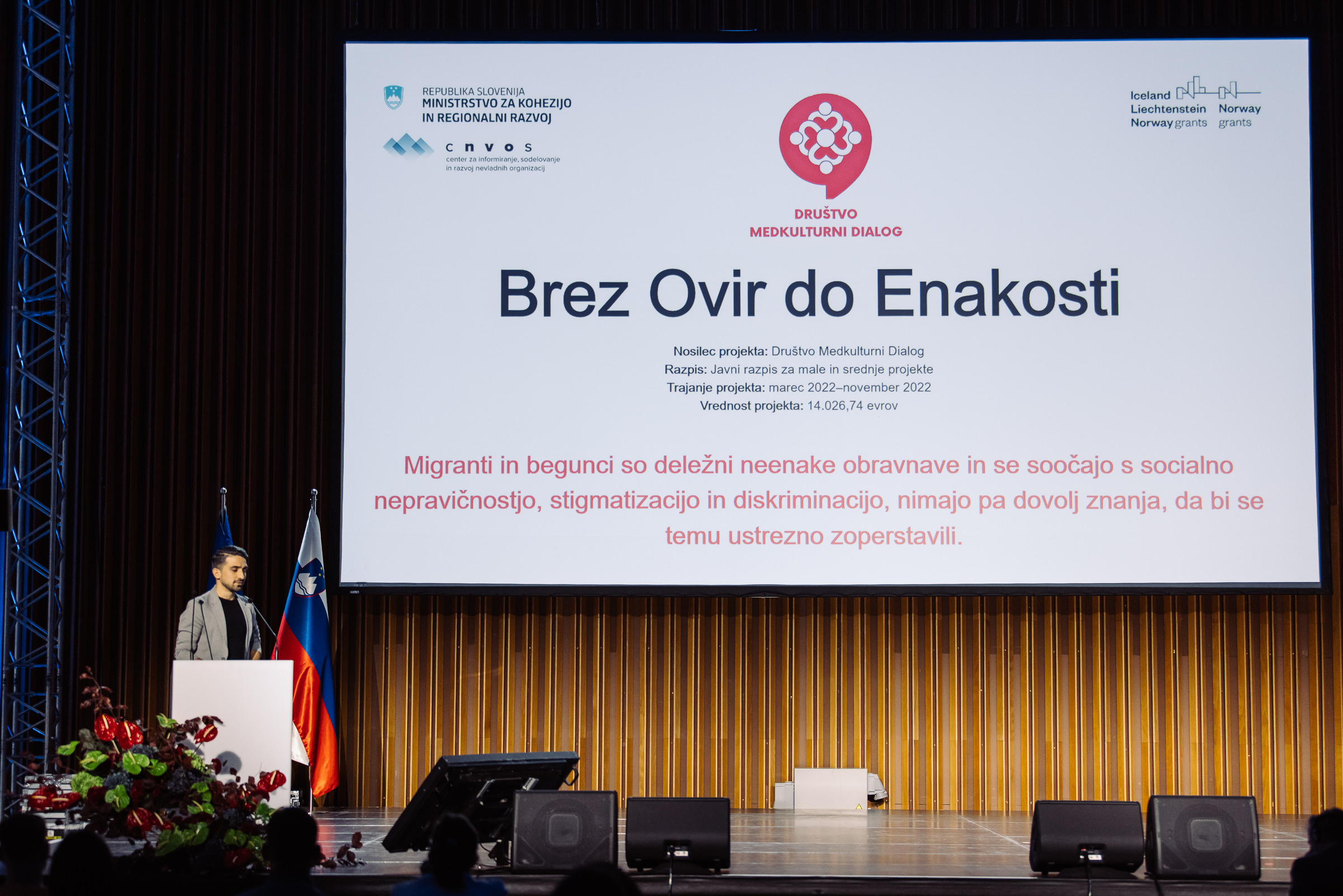
The No Barriers to Equality project, which focused on empowering vulnerable groups, was presented by Furkan Guner from the Association for Intercultural Dialogue. This project addressed challenges such as social injustice, stigmatisation, and discrimination that migrants and refugees often face.
Working Together for a Green, Competitive and Inclusive Europe
The projects of the 2014-2021 programming period have contributed to the development and quality of life in different parts of Slovenia through their results. These projects have created new partnerships while transferring knowledge and good practices. The Grants have also contributed significantly to strengthening long-term bilateral relations between Slovenia and the donor countries, both at the national level and between institutions and individuals at the programme and project levels. By sharing successful national policies and good practices, the Grants have contributed to a green, competitive and inclusive Europe.